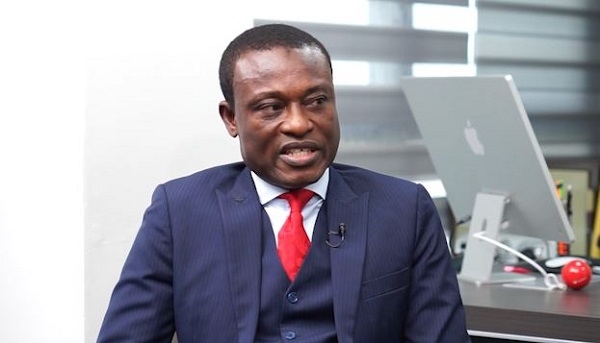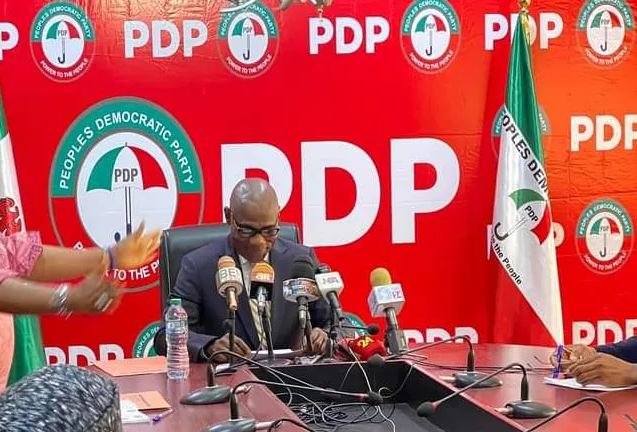ACPN counters NARD, demands healthcare reform, professional autonomy
The Association of Community Pharmacists of Nigeria (ACPN) has condemned the Nigerian Association of Resident Doctors (NARD) over its recent rebuttal in the leadership crisis in the healthcare sector, advocating for reform and professional autonomy while articulating its stance on critical issues surrounding healthcare leadership and professional practices within the industry.
Recall that ACPN, in a letter to President Bola Ahmed Tinubu, alleged the growing domination of medical doctors in the health sector.
In response, NARD, through its President, Dr. Tope Osundara, dismissed ACPN’s claims, stating that there has been no encroachment by doctors into the jurisdiction of other health professionals either locally or nationally. Osundara instead described what he termed repulsive utterances from other professionals against the positive contributions of doctors.
He argued that if pharmacists sought leadership roles in hospitals, they were effectively attempting to rank above health information managers who hold equivalent academic qualifications. He also insisted that physicians refrain from interfering in the professional affairs of other cadres within the health system.
But in a rebuttal statement obtained by The Guardian, ACPN dismissed NARD’s claims, insisting that hospital administration should ideally be an autonomous function handled by trained professional administrators, as is the case in advanced health systems.
The national chairman of ACPN, Pharm. Ambrose Ezeh, in the statement, addresses two main points raised by NARD: the effectiveness of physician-led hospital leadership and the claim that physicians do not interfere with other health professions.
The ACPN expressed appreciation for the intellectual discourse initiated by NARD but emphasised the need for clarity on several significant aspects of healthcare administration in Nigeria. The association noted that healthcare administration is, ideally, a professional calling that is autonomous. It criticised the deviation from this norm that occurred in 1985 with the introduction of Decree 10, which mandated the headship of Federal Health Institutions (FHIs) by physicians.
Highlighting the adverse effects of this shift, the ACPN stated that the hospital system in Nigeria, previously characterised by efficiency and decorum under professional administrators, has suffered tremendously under physician leadership.
“The takeover by physicians has led to unprecedented corruption and inefficiency within the health sector,” the statement read.
It pointed out that recent reports identify the health sector as the most corrupt area within the national economy.
The association cited numerous instances of corruption involving physician leaders, including ministers and hospital directors, some of whom have faced charges related to the misappropriation of funds intended for crucial health services. The statement further revealed that the health sector is now burdened with over N30 billion in debt owed to the pharmaceutical industry, resulting from the mismanagement of health funds.
Additionally, the ACPN criticised the lack of leadership and management competencies among physicians.
“Physicians often demonstrate poor communication, subpar relationship management, and an overall lack of experience in business strategies,” they stated, highlighting how this deficiency adversely affects the functionality of public healthcare facilities.
The ACPN emphasised troubling health indices in Nigeria, including high rates of infant and maternal mortality, inefficiencies in health logistics, and a neglect of preventive healthcare. The association lamented that the healthcare system has shifted its focus from preventive measures to exclusively curative solutions, often driven by economic interests.
Regarding NARD’s assertion that physicians do not interfere in the affairs of other health professionals, the ACPN challenged this notion, arguing that the current climate clearly illustrates a lack of respect for the roles of non-physician professionals.
Recent discussions concerning the implementation of a Consultant Pharmacist Cadre were cited as examples where physicians have resisted acknowledging the contributions of pharmacists and other healthcare workers.
“The health sector has been plagued by negotiations skewed in favour of physicians, enabling them to dictate terms that marginalise other health professionals,” ACPN stated.
They observed that historical resistance to appointing non-physicians in key healthcare roles has contributed to a culture that undermines the capabilities of other health professionals.
ACPN therefore call for comprehensive reforms in Nigeria’s healthcare system, advocating for a model grounded in global best practices.
“For Nigeria to move beyond ineffective healthcare governance, the government must embrace holistic reforms that genuinely serve the needs of all Nigerians,” the association stated, signalling a commitment to pursuing a more collaborative and effective healthcare framework moving forward.










